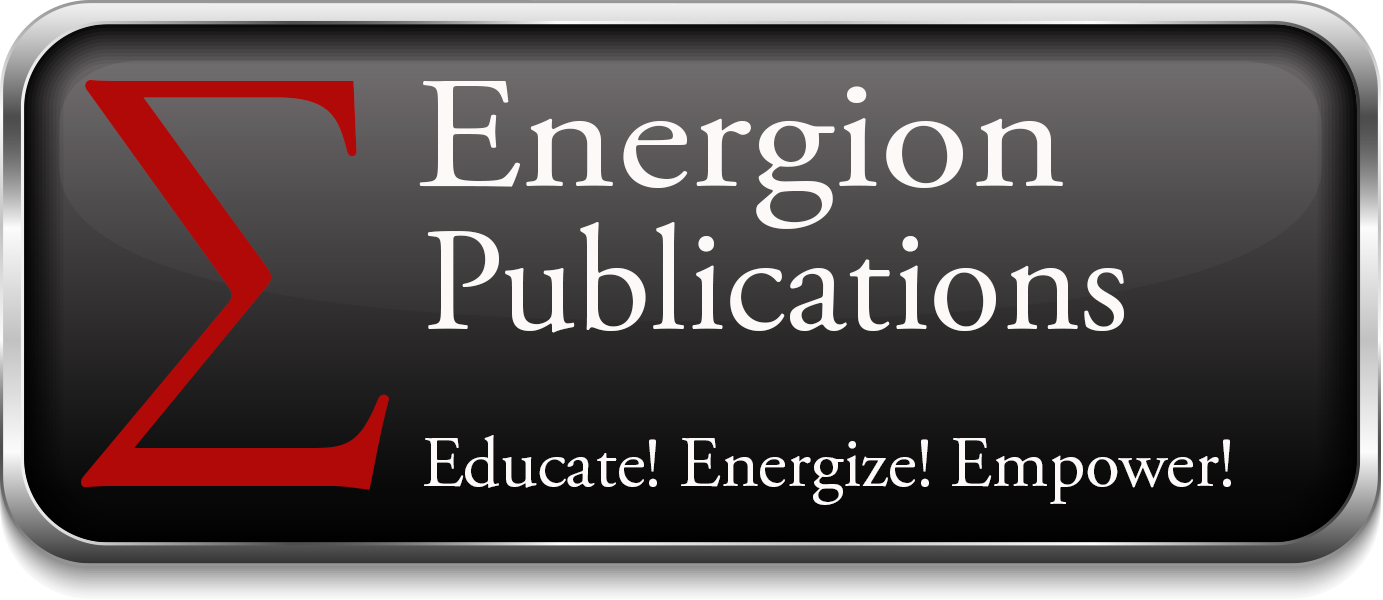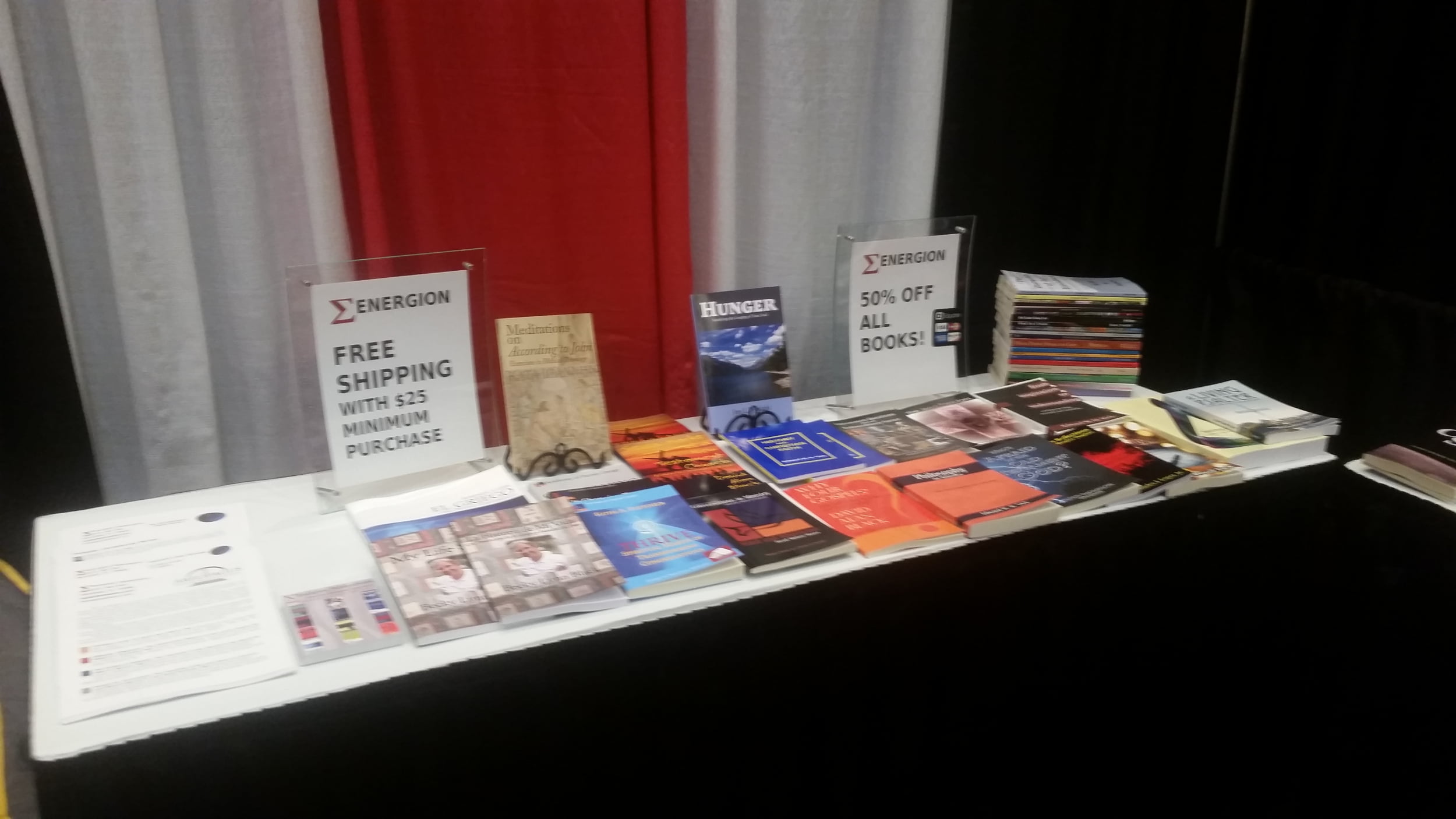SBL/AAR After Action Report #SBLAAR15

From November 21 to 24, 2015, I exhibited Energion Publications books in booth 2110 at the Society of Biblical Literature/American Academy of Religion (SBL from here on) annual meeting in Atlanta, Georgia. It was a very interesting experience for a small publisher to display in this large venue.
For the benefit of other small publishers or organizations that are considering displaying at this sort of event in the future, and also to let our constituency know a bit about what goes on around here, I thought I’d make my thoughts on this event public.
What does a little company like Energion Publications want to accomplish at SBL? Well, as always, we want to sell books. There are somewhere around 10,000 people there, generally interested in biblical studies, so it seems like a good audience at first glance. But we need to break this down a bit further.
I went thinking of three categories of activity.
- Direct sales. Put books in the hands of buyers on the spot.
- Textbook, readings, and curriculum adoption. SBL is a particularly good place to find people looking for textbooks. By curriculum here I mean materials for church programs as opposed to college or seminary texts.
- Networking. Finding potential new authors and also contacting people that we might want to communicate with in the future. When you e-mail someone it’s helpful if they remember a personal conversation with you, always provided they didn’t find you a bore!
Considering that you start by paying around $2,000 for a booth and considerably more than that for the additional costs involved, a small company has to consider carefully what they believe they will accomplish in a venue like this. Our results were interesting, and not unpredictable.
But before I give results in each of these categories, let me note that SBL is not a Christian organization. There are plenty of Christians in it, but it is a society for all of those interested in biblical studies from any perspective. This should be obvious, I think, but for some it is not. It is also an organization for scholars. You’re not going to find your average church member looking for an introduction to reading his or her Bible.
The aisle on which we were located gives some perspective. On one side was Eisenbrauns with their excellent academic offerings. We’re not operating in the same space. They were extremely busy. Across from us was Hendrickson Publishers, displaying their academic line, and also quite well occupied. South African Theological Seminary, and evangelical seminary offering a PhD via distance learning was located on the other side. Down the aisle was Crossway with a few academic books and a few for the general public. Crossway connects primarily with evangelicals. At the other end of the aisle, on both sides, was Abingdon, with again both academic and general audience books. (Across from Eisenbrauns was Editorial Verbo Divino, offering academic books in Spanish, which put them in a completely different category.)
Where did Energion fit? Well, we do not publish anything that competes with Hendrickson or Eisenbrauns. We have a bit of crossover with Crossway (both we and they had a substantial volume on divine revelation, for example), and we also have a bit of crossover with Abingdon. What we don’t have is a substantial number of books that biblical scholars in academia want on their shelves.
There is publishing for scholars, i.e. material written or prepared by scholars for scholars on the one hand a simple, popular works on the other. Then there is Energion Publications, where the bulk of our books are written by scholars for people who are not scholars. The majority of our authors have doctoral level degrees, while other authors have made a serious study of their subject. But none of these people are writing exclusively or primarily for a scholarly audience. Yes, I would consider books like The Jesus Paradigm, From Inspiration to Understanding, Philosophy for Believers, Meditations on According to John, and our Areopagus series to be valuable to scholars as well, but they are addressed to the church.
Note two points: 1) We’re not primarily addressing scholars, and 2) Even when we address scholars, we’re generally addressing scholars in the church.
With that, point #1. Sales of books were dismal. Well, one needs to consider context. They weren’t really dismal against realistic projections. Fortunately, I’d planned the budget based on $0 in sales. Why? Because before I got there I really had no basis to judge. One representative of a larger company that had worked this event for his company told me that he would be surprised if I sold less than $10,000. I think he must have looked at the size of our catalog vs the size of his and done a quick mental division. We actually sold in the hundreds, not the thousands or tens of thousands.
 One book that did draw attention was Seeing the Psalter, which is a challenging read. I encountered a couple of people with backgrounds both in biblical languages and in information technology who were attracted to that book.
One book that did draw attention was Seeing the Psalter, which is a challenging read. I encountered a couple of people with backgrounds both in biblical languages and in information technology who were attracted to that book.
It really only takes a bit of using one’s head to explain this. If you look at my explanation of our books vs. their books, you’ll see. SBL is much more likely to be a good fishing ground to catch Energion’s sort of authors than Energion’s sort of readers.
Which leads to objective #3. Based on my explanation so far, if you’re expecting that #3 went better than #1, you have caught the logic. It went much better. I am past satisfied with these results and have attained excitement. Of course, those who know how these things work will realize that not all contacts turn into book contracts. OK, let’s make that not very many. But the results were still good even with that consideration. Some were just general interests, but some were very specific.
Stepping back to #2, the same logic applies. For the same reason that our books are rarely the ones SBL attendees want to read or put in their own library, there are a significant number that they might want to have students read. The most popular book in this category was Aprenda a leer el Griego del Nuevo Testamento, the Spanish translation of Dr. David Alan Black’s introductory Greek grammar. Others that featured were Meditations on According to John (and the still-in-manuscript Meditations on the Letters of Paul), Philosophy for Believers, Why Four Gospels, and Process Theology.
We did better in the text and reading area than in church curriculum, though there was substantial interest in Hunger: Satisfying the Longing of Your Soul, which is still in process (you should see it on Amazon in about a week).
Overall, I believe the trip was worth it for our company. I have not committed to next year, as I want to observe actual results. Do the books in which people showed particular interest start selling better over the next few months? Do I discover that any of them have been adopted as textbooks? Adoption of a book as a textbook, is, of course, the gift that keeps on giving for a publisher.
If the follow-up is proportional to what I saw, I would expect us to be in San Antonio in 2016. That, however, will have to wait for further action!



